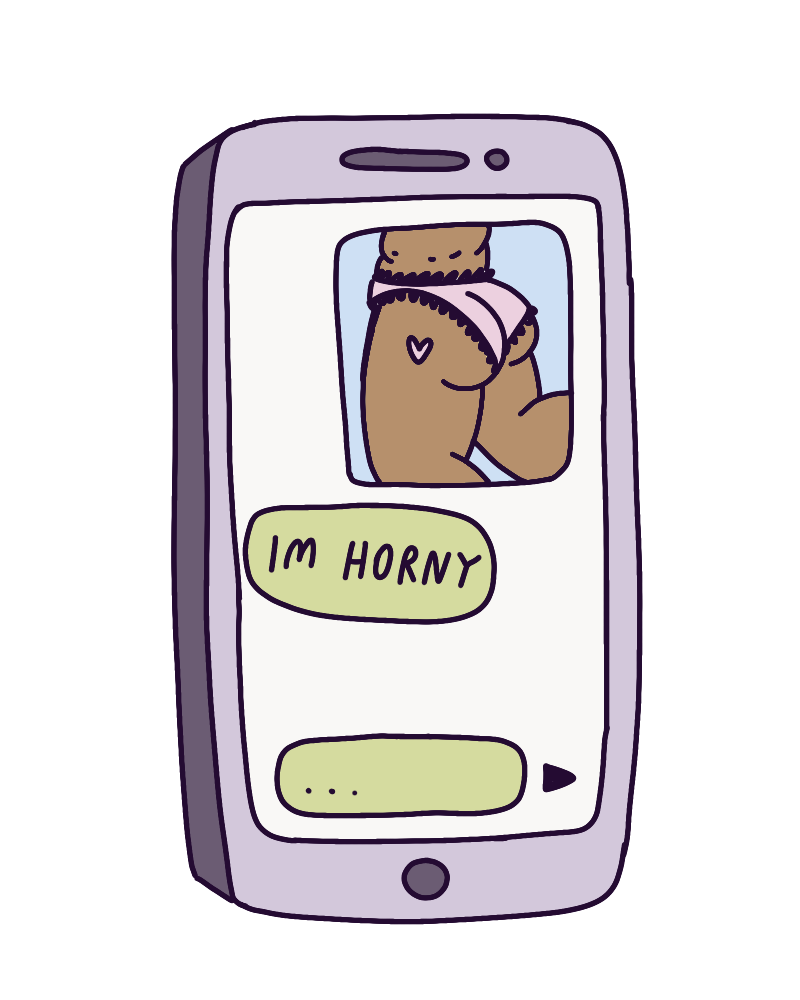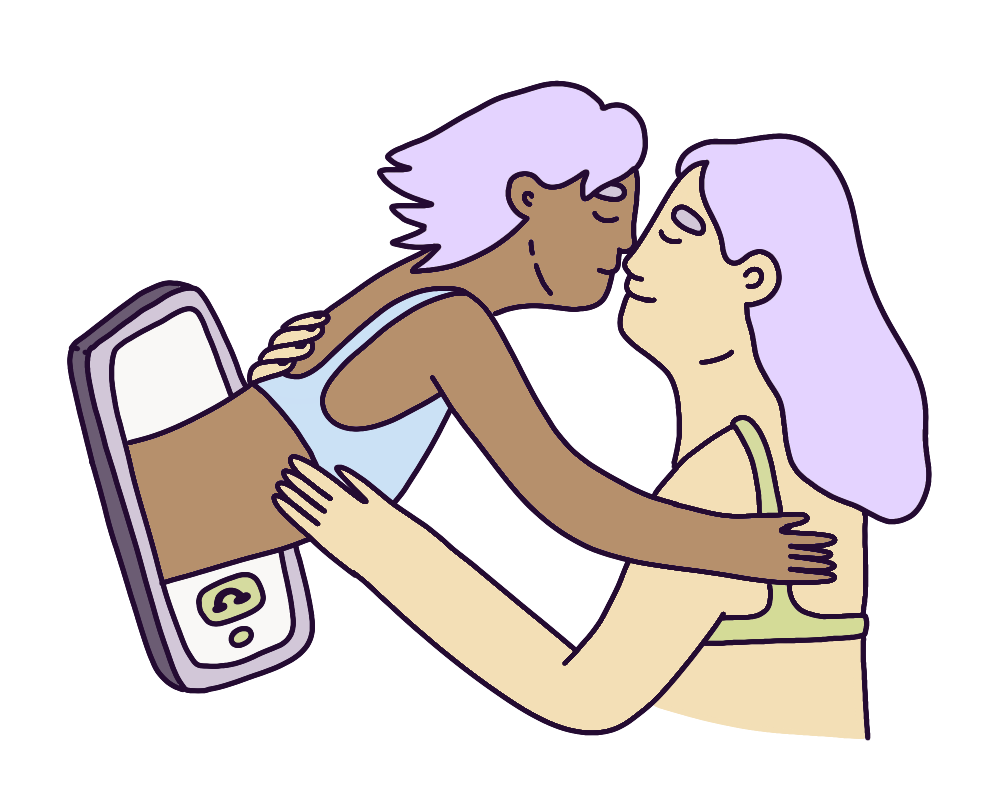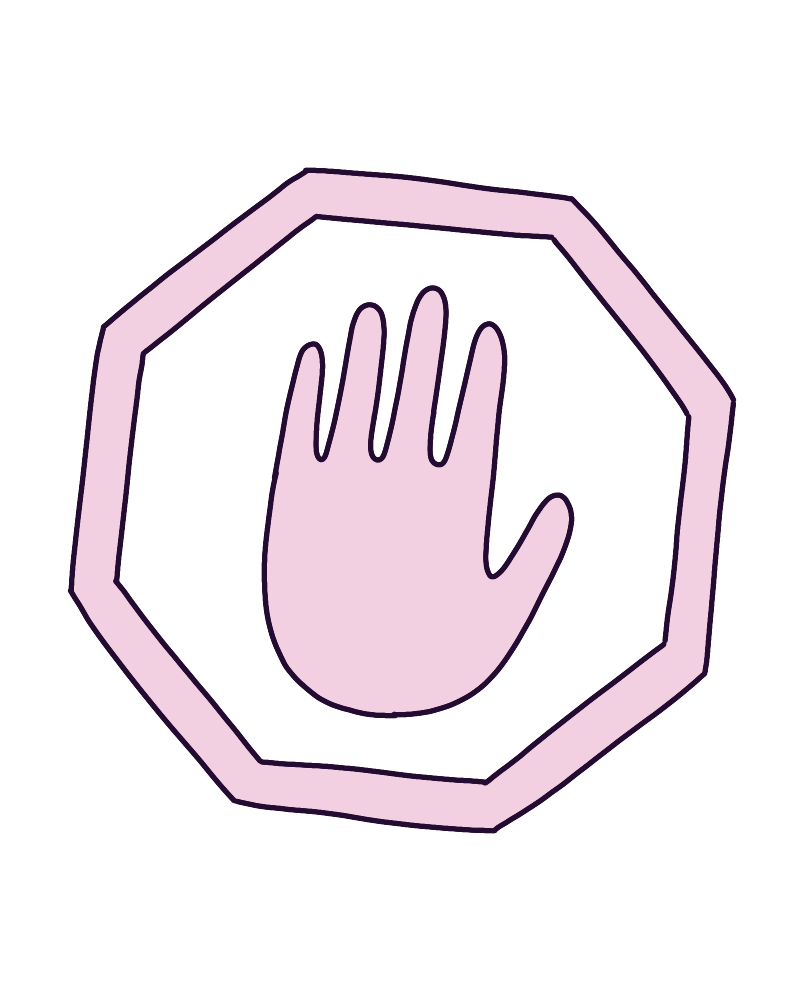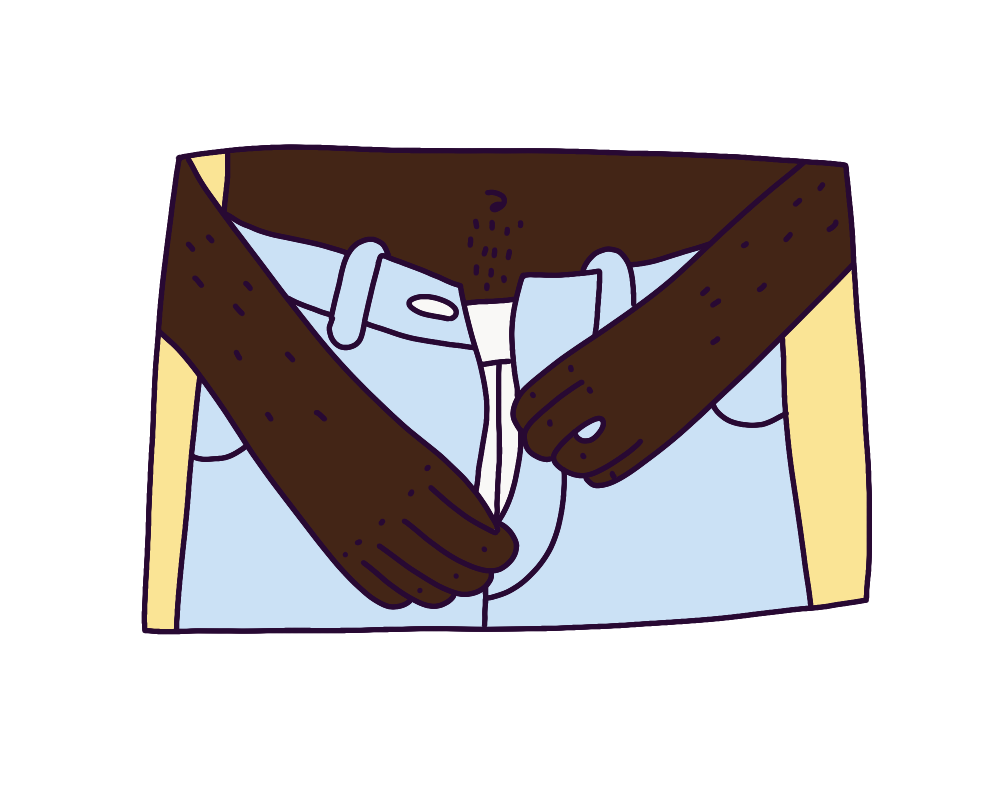Sexting

What is sexting?
📗 Sexting is a combination of sex and texting, which means sending nudes, or a sexy picture of yourself, to someone with the intent to sexually arouse them. It started as picture text messages, but has grown to include things like pictures and videos on social media apps.
Why do people do it?
Some people sext because it’s exciting. Some people share pics when they can’t be together physically. Some use it as a way to get get 'warmed up' before sex. It can be a way of flirting or sharing desires.
Sexting can be a way to communicate fantasies, especially if you're shy or not ready to meet and explore these things offline. It can be part of a healthy expression of your sexuality, without having to worry about your immediate physical safety. Not to mention that there’s no way of getting pregnant or an STI just from sexting.

Sexting for under 18s
There are laws around sexting and sharing sexual images of people under 18. These laws may apply to you even if you and the other person are both under 18. The law may categorise your sexts as ‘child abuse material’ or ‘child exploitation material’.
By sexting or sharing and receiving sexual images of yourself or one another, you and the other person may both be breaking the law.
You can read more about what the law says here .
Sexting with respect
Like any other kind of sex, it's important to think about consent, boundaries, and communication . The other person might not want your nude selfie on their phone, or they might not feel comfortable taking pictures of themselves. Remember FRIES applies to sexting too.
If someone does send you a sext, treat it with respect. It’s not OK to show it to anyone else. They have shared something with you, don’t assume that this means they consent to other people seeing it.
Digital images are permanent, but sometimes relationships change. If your relationship ends, you can show respect to each other by deleting all sexts and nudes from your phone
When sexting becomes harassment

Sexting can become sexual harassment if:
- Someone is pressuring you over and over again to send nudes or videos of yourself, or to engage in sexy talk when you don’t want to.
- If someone sends you explicit messages that you don’t want (for example, unsolicited dick pics), even after you have asked them to stop.
- If someone sends, or threatens to send, a naked picture of you to other people without your consent.
It’s always OK to say no. No one should ever pressure you to share nudes. If you choose to send sexy pictures of yourself, it should be because you want to, not in exchange for promises of sex, friendship, and connection.
Gender and sexting
It’s not fair, but like a lot of things in our society, there are double standards around sexting. Young women are much more likely to be 'slut shamed' for sharing nudes than young men.
Additionally,

Cis men may also feel pressure to send dick pics in order to prove their masculinity or manhood regardless of their sexuality. Many men also report pressure to get, collect, and share pictures from women.
❓Reflection
Can you think of other ways that your own gender identity influences how you experience sexting?
What to do if someone shares or threatens to share your sexts?
Sometimes, people don’t sext with respect. It is never OK for someone to share or post your nudes, or any sexual image or video of yourself, to anybody else, without your consent. It is unfair to you to have no control over the use of your images and videos. This can also be known as image-based abuse, and it is actually against the law.
It is common for someone in your position to feel angry, scared and upset. However, you do not need to feel ashamed about your body, your desires, your sexuality, or for consensually sexting with someone else. You have not done anything wrong. Additionally, there are sometimes steps you can take to get your image removed from social media, or you can even report it to the police.
Youth law has more information about the steps you can take.
Reflection
What are your rules, boundaries, or expectations about sexting?
Help us improve this info by letting us know how you found it.
Start
Adult subscription and social sites
